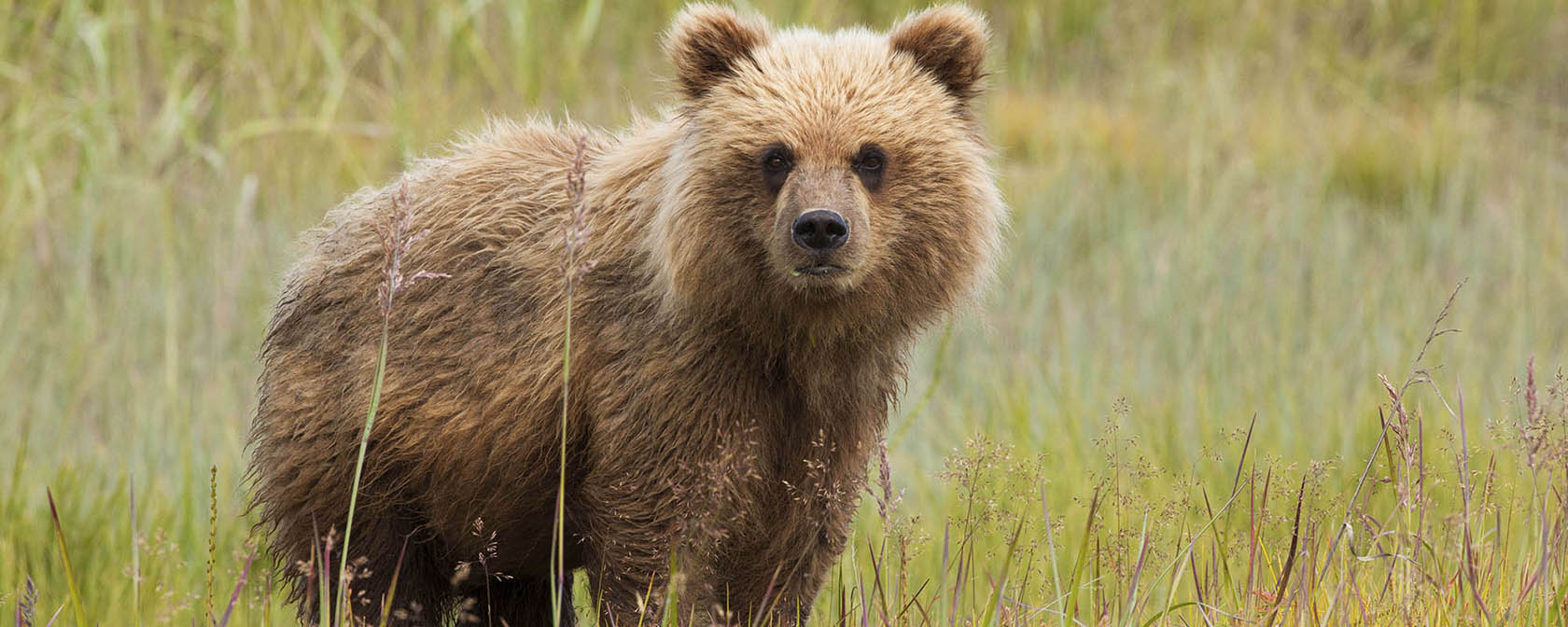By Sara Amundson and Kitty Block
The U.S. National Park Service has finalized a rule that bans using bait such as piles of donuts, dog food and meat scraps to attract and subsequently kill brown and black bears on Alaska’s national preserves.
While we are pleased the Park Service has recognized the inherent danger and cruelty associated with bear baiting, and as a result banned that practice, the rule failed to finalize bans on some of the most cruel and inhumane methods of hunting and trapping. This falls far short of doing what was needed to protect our nation’s most beloved and iconic wildlife species, including brown and black bears and wolves, from Alaska’s “intensive management” practices.
When the proposed rule was issued, we were excited to see the Park Service’s intent to ban other inherently cruel practices such as killing hibernating mother black bears and their cubs in their dens with the aid of artificial light; killing wolf and coyote pups and their families in their dens and using packs of radio-collared hounds to hunt black bears. Most hunters themselves agree that these cruel hunting and trapping methods are inhumane and unacceptable. Most Alaskans, too, support the prohibition of these brutal methods by substantive majorities.
All of these horrific practices were banned in 2015. But that ban was reversed in 2020 (a decision we and our allies successfully challenged in court). We have been fighting hard to restore these essential protections since.
The small group of people who support these methods sometimes claim a need to kill native carnivores to boost prey species for hunters in a practice known as “predator control.” However, the best available science shows that predator control doesn’t work and has dire consequences for native carnivores and prey species alike. We have seen species such as brown bears dwindle in Alaska because of the state’s unscientific “intensive management” practices targeting native carnivores, harming entire families and ultimately ecosystems.
While banning bear baits is a step forward, failing to ban the other horrific methods abandons bears, wolves and coyotes to extreme suffering and a miserable, brutal death. More than 99% of the comments submitted on the 2015 rule supported banning these methods of hunting and trapping. Last year, the National Park Service received more than 116,000 comments from our members in support of the proposed rule to ban these forms of cruelty on Alaska’s national preserves. And sadly, while the Park Service did take one step in the right direction by banning bear baiting, they failed on all other counts.
Bear baiting is undoubtedly cruel, dangerous and harmful, and that recognition from the Park Service is vitally important. But it is no less cruel to kill hibernating bears or entire wolf and coyote families at their pup-rearing den sites. We’re grateful for what this rule has done but devastated by its omissions that fail to protect wild animals from despicable treatment. We will keep fighting cruel hunting methods until wild animals in Alaska’s national preserves get the protections they deserve.
Kitty Block is CEO of the Humane Society of the United States.




